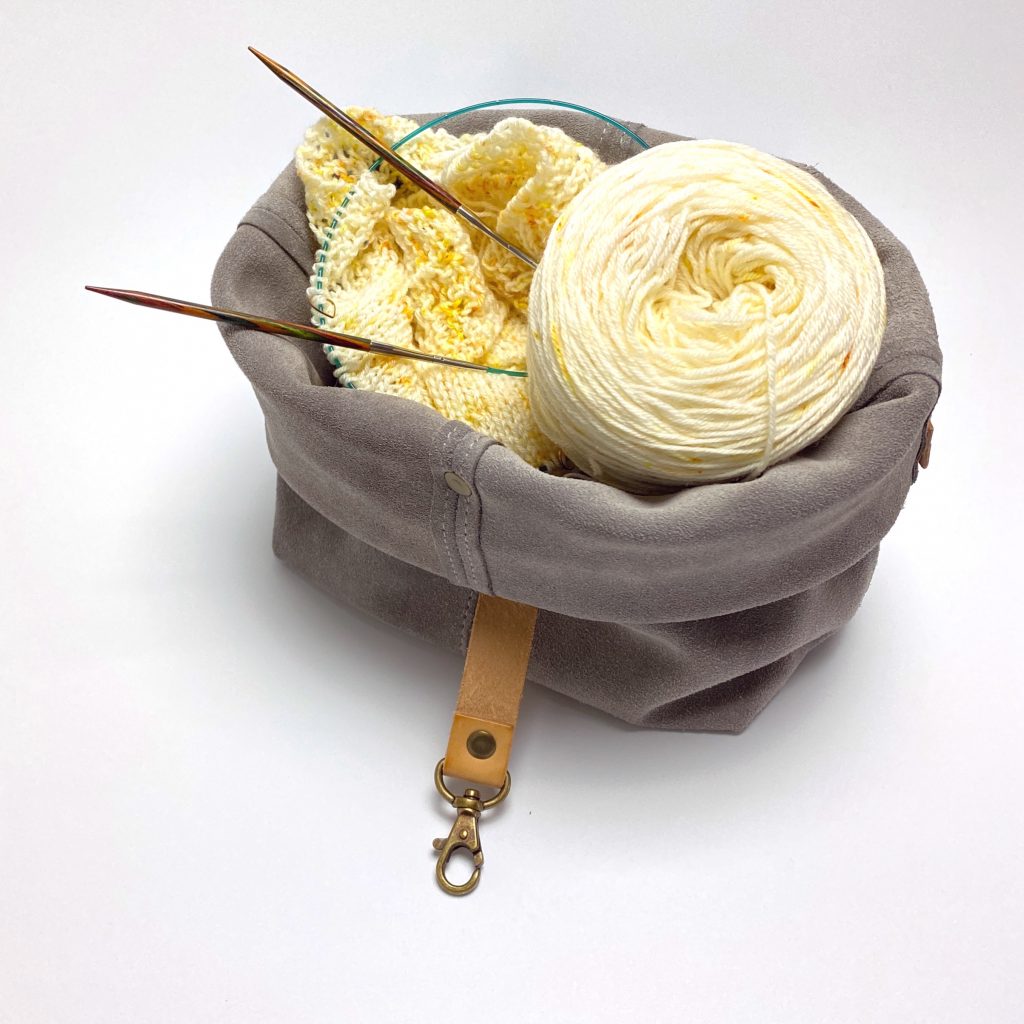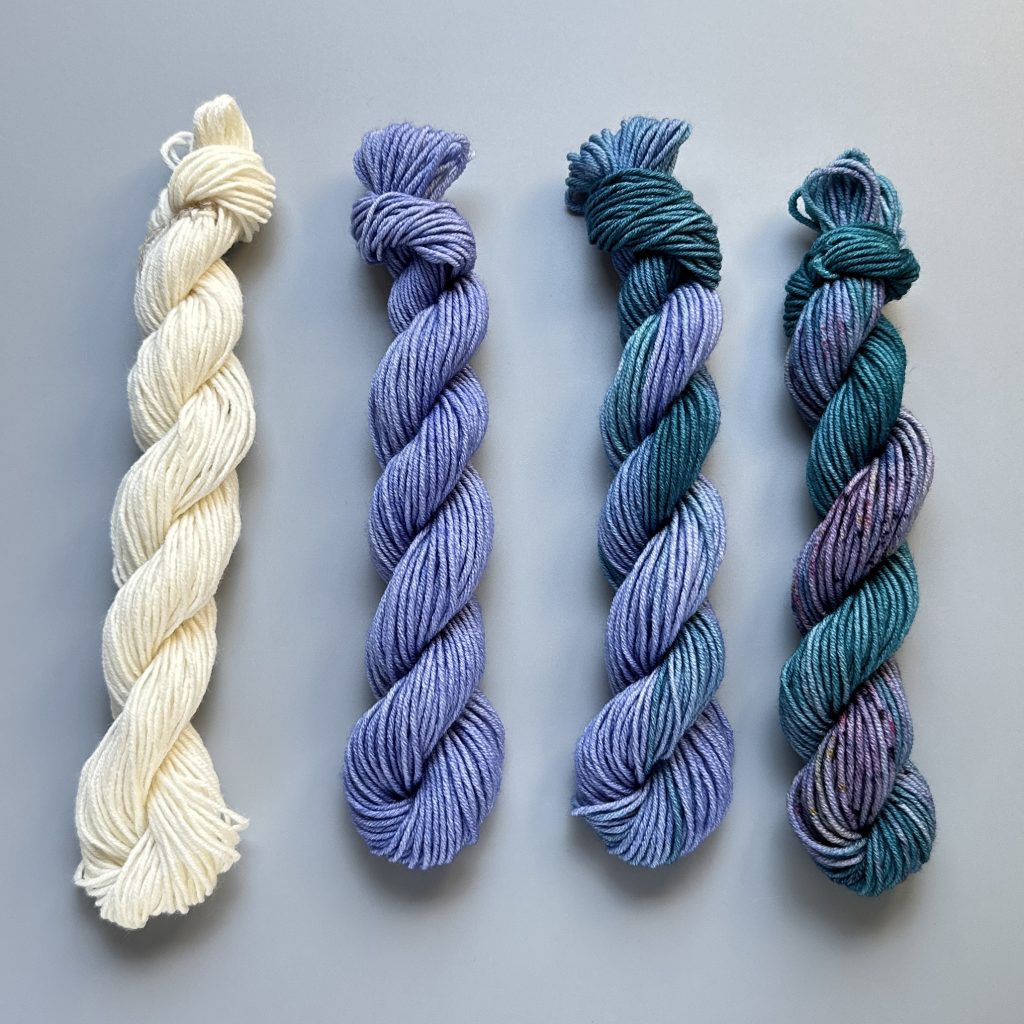Learn more about Heathland Knits yarn and dyeing
All raw yarns, which Heathland Knits uses as a basis for dyeing, are produced either in Germany or the United Kingdom according to environmental and social standards.
If the yarn contains merino wool, the sheep were kept without mulesing. Mulesing is the removal of the skin around the tail of sheep without anaesthesia (stunning) while the sheep is fixated on its back in an apparatus. It is a common practice in Australia to prevent a parasitic fly infection (Wikipedia). This is causing physical and psychological trauma to the sheep. We reject this practice.
The Bluefaced Leicester (BFL) wool of the used raw yarns comes from the United Kingdom. The wool of the alpacas comes from Suri Alpacas from Peru.
Instead of the usual nylon fibers, it is important to us to have plant-based alternatives in the yarns. Instead of nylon, some yarns therefore contain ramie, linen or Tencel. The linen fibers come from the Baltic States. Ramie (Boehmeria nivea) is a tropical nettle plant (Urticaceae). Ramie gives the yarn a certain sheen. Tencel is made from eucalyptus and belongs to group of Lycocell. The eucalyptus comes from France and is processed for the raw yarns in Austria.
Find in depth information about all the used fibers on the following pages:
Yarn Usage and Care
Color Inspiration
Dyeing Process
Read more details about specific yarn bundles
- This years HiberKnitting colors: Cozy Valentine
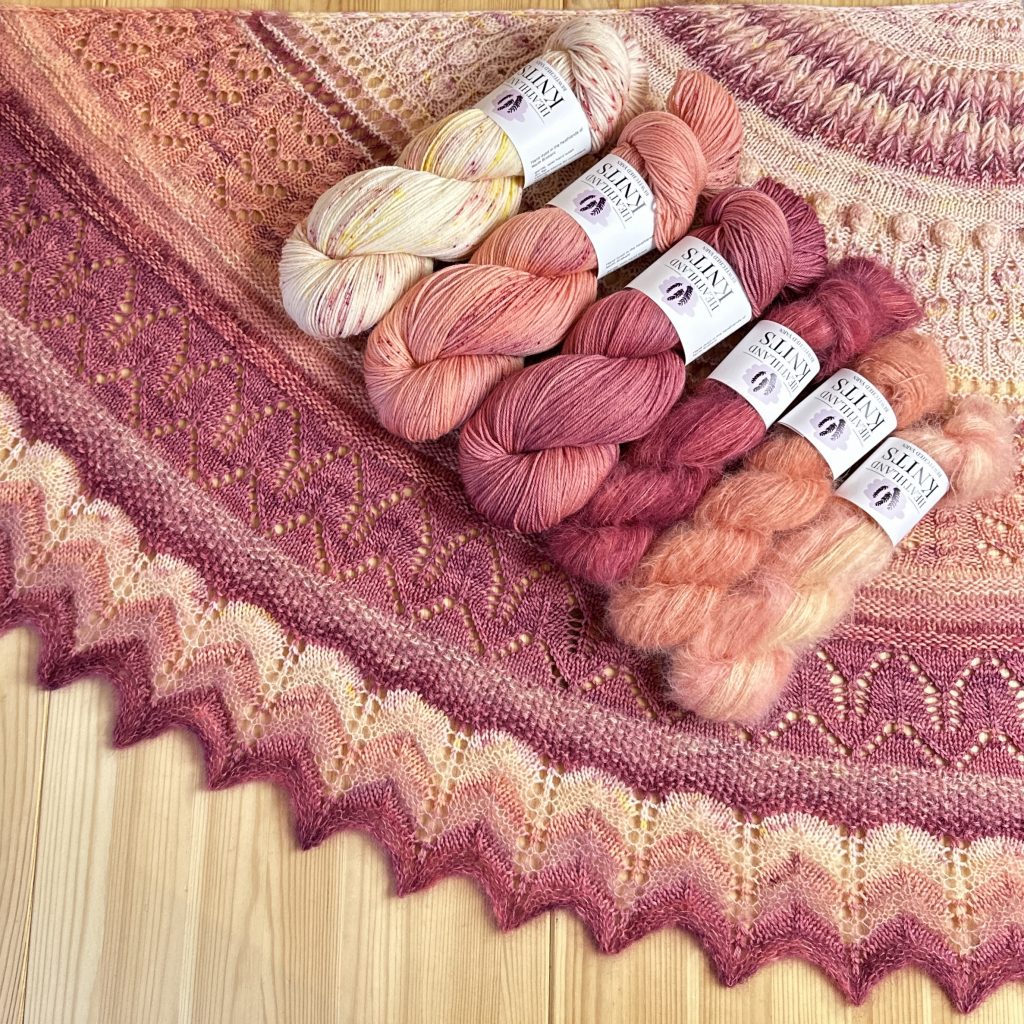 EN | GE | NL 🇬🇧 The Hiberknitting is usually starting at 26th December, the second day of Christmas and…
EN | GE | NL 🇬🇧 The Hiberknitting is usually starting at 26th December, the second day of Christmas and… - A glimpse behind the scenes
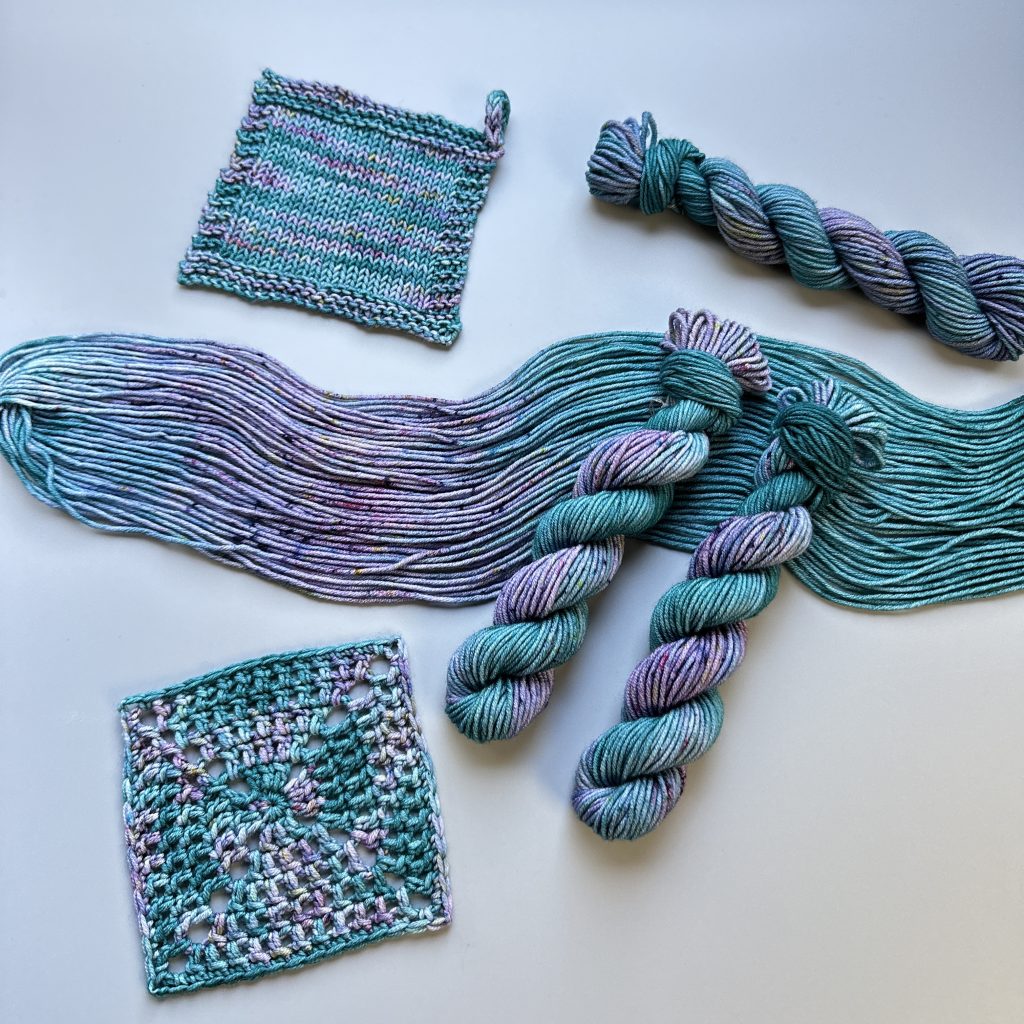 EN | GE | NL 🇬🇧 Let me show you how many separate steps are needed to create Heathland Knits…
EN | GE | NL 🇬🇧 Let me show you how many separate steps are needed to create Heathland Knits… - Frolicking Field – Spring Colors
 EN | GE | NL 🇬🇧 Inspired by the name and the view of the early spring fields during a…
EN | GE | NL 🇬🇧 Inspired by the name and the view of the early spring fields during a… - New colors coming – Glaciers Fade
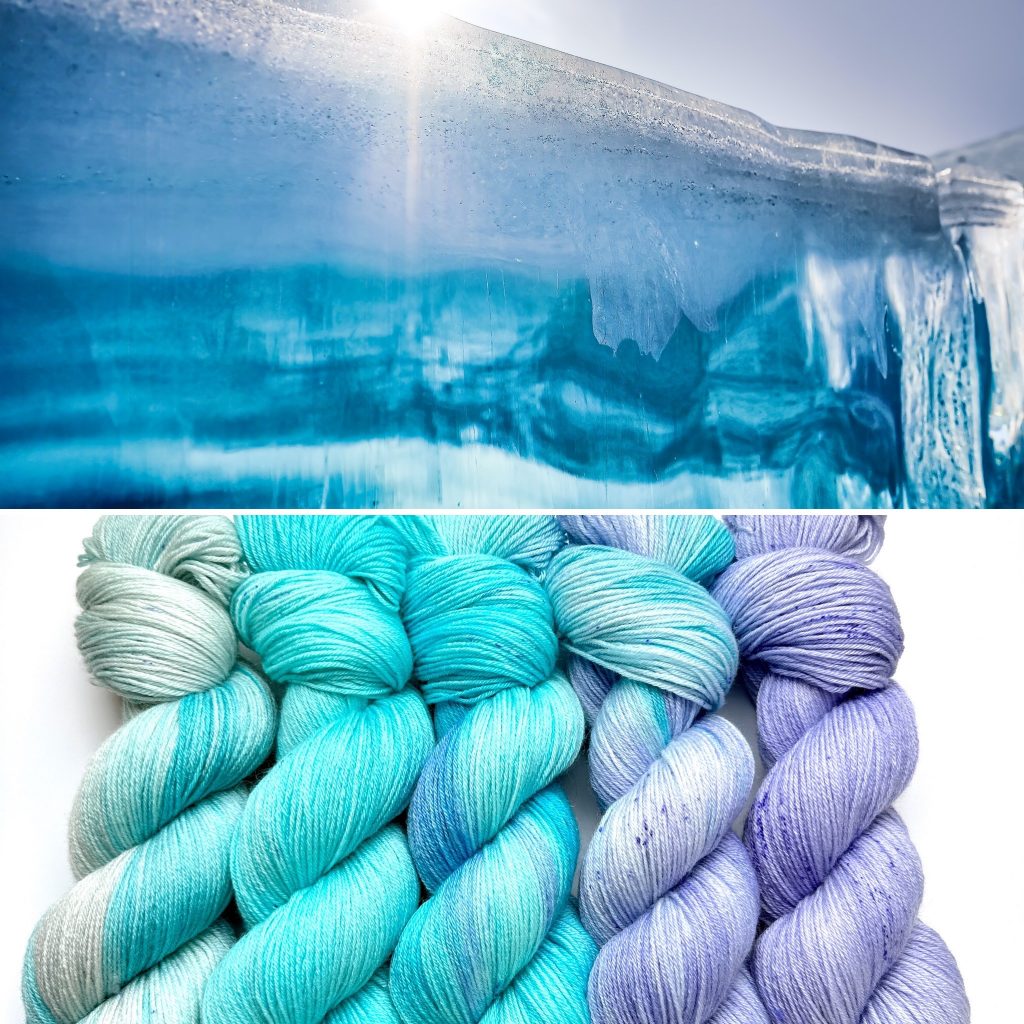 EN | GE | NL 🇬🇧 It was about time to do some brewing in the dye pot. The result…
EN | GE | NL 🇬🇧 It was about time to do some brewing in the dye pot. The result…
Check out all yarn related entries …

